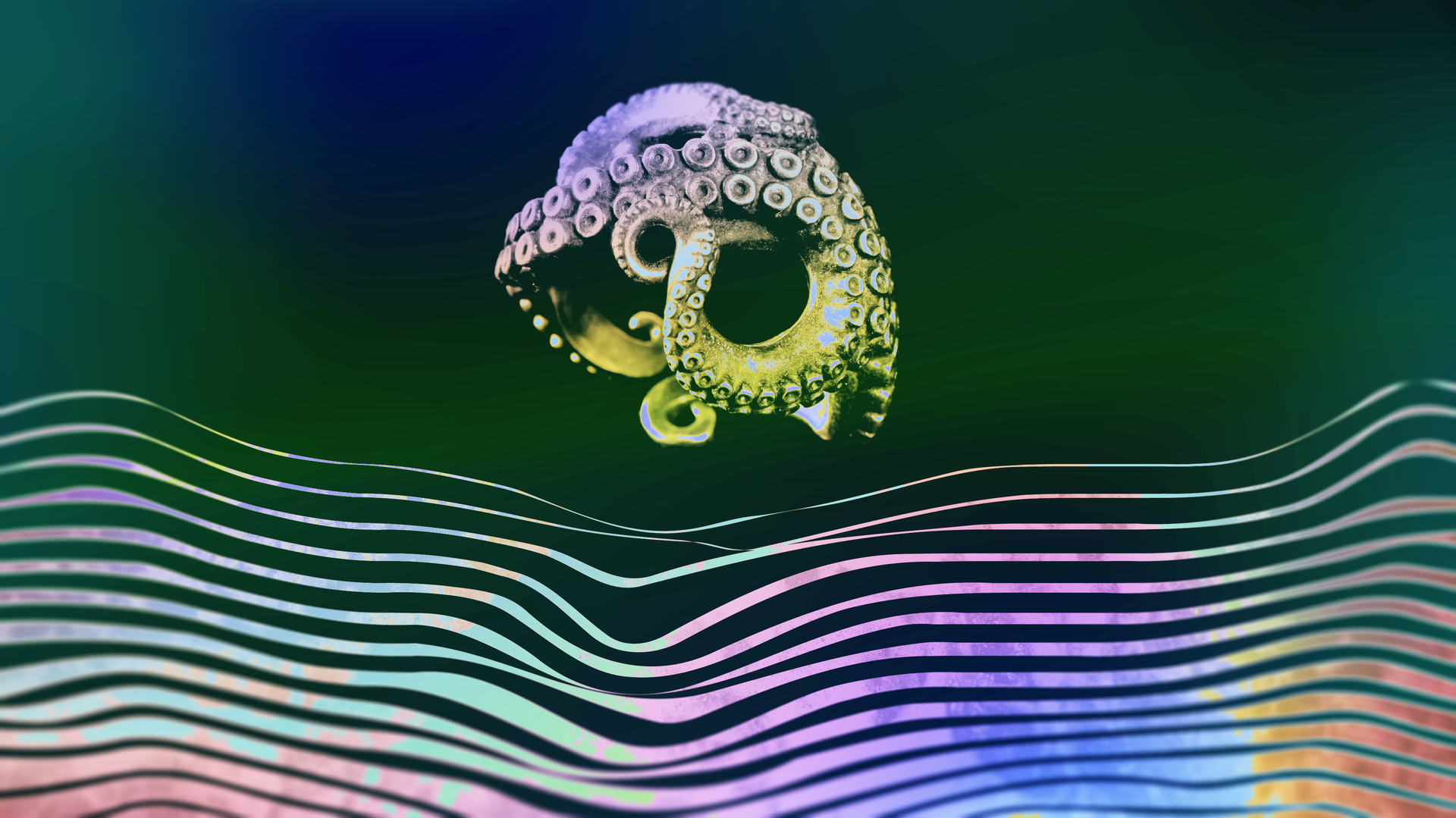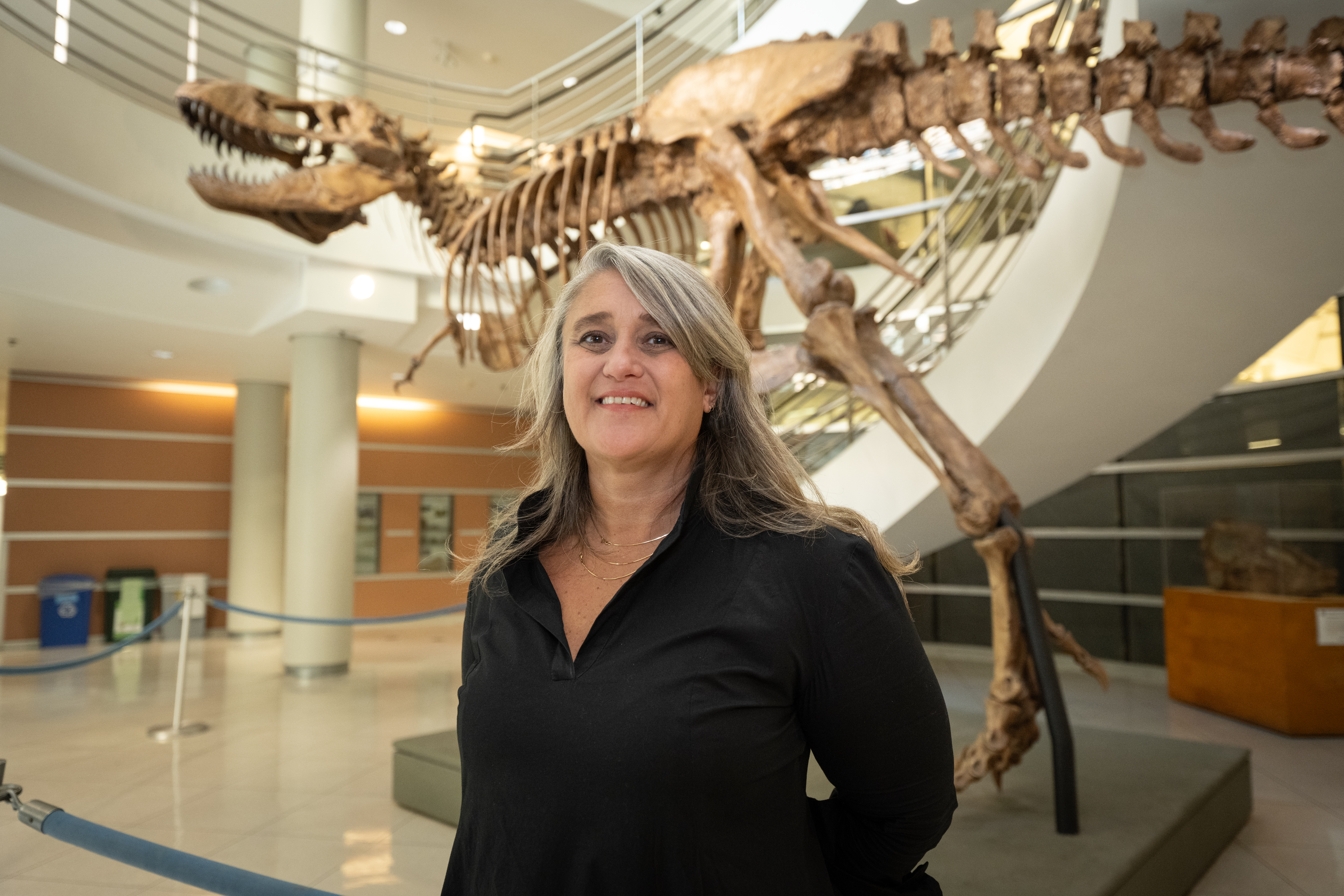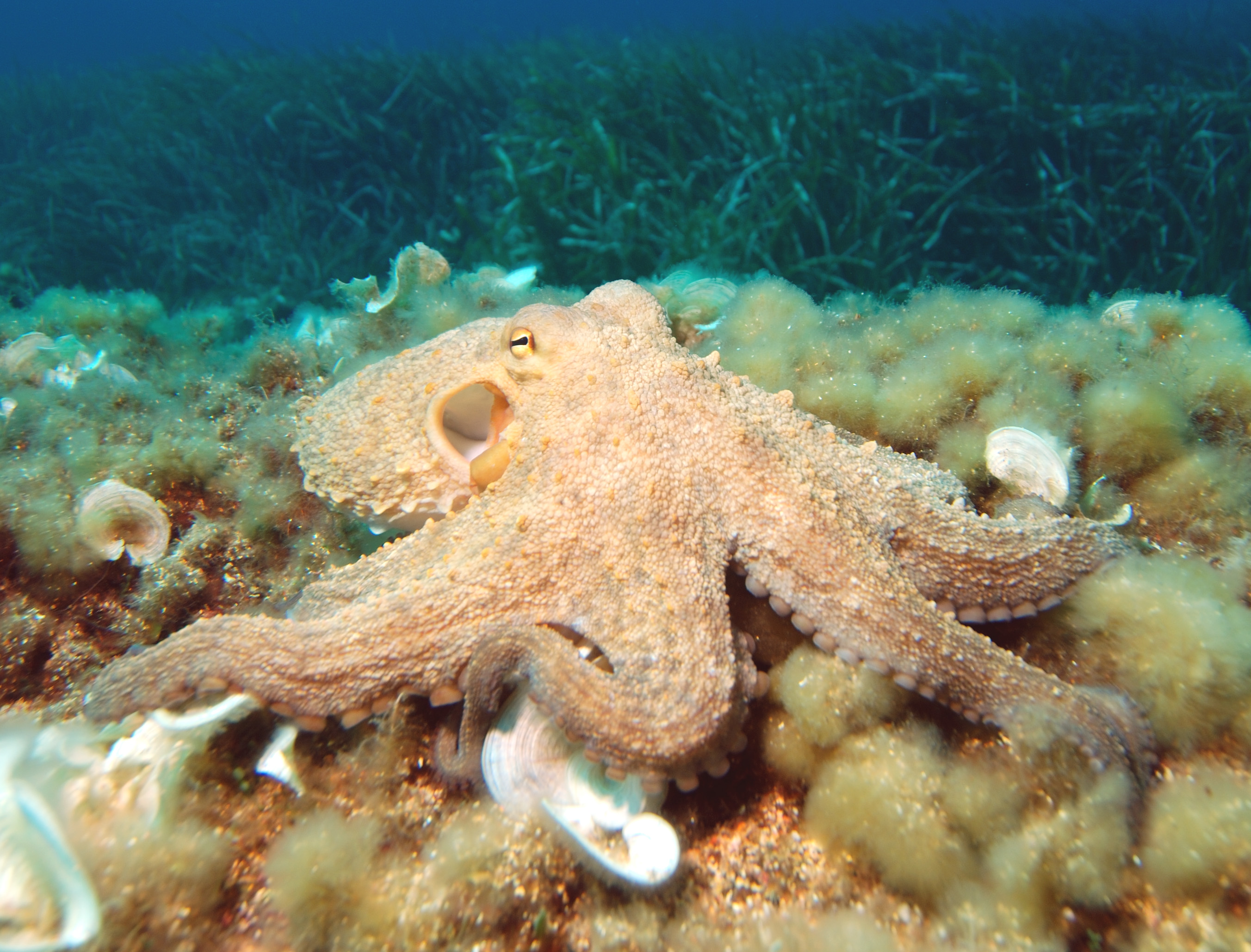For New Professor, Psychedelics and Octopuses May Hold Keys to the Human Mind
Gül Dölen is known for her research on how psychedelics affect "critical periods" and learning. Now at UC Berkeley, she's exploring how the brain engages with the drug ecstasy and what it might mean for the future of psychedelic-assisted treatment.

Gül Dölen became a scientist because she loved solving puzzles that drew on neuroscience, medicine, biology and philosophy. But a decade ago, her spirits were waning, and a string of funding rejections brought her lab to the brink of folding.
Then came the octopuses, all seven of them, and a curiosity-driven experiment.
Before then, Dölen's team at Johns Hopkins University School of Medicine had been studying and expanding what was known about how psychedelics could help reopen finite windows of opportunity called "critical periods." These brief openings as the brain develops enable rapid learning, like language in humans. They've been a focus of neuroscience for nearly a century. And when paired with therapy, Dölen believes, these drugs can help treat disorders caused by mental trauma or even strokes.
But her octopus study found something else remarkable: When exposed to water laced with a small amount of MDMA, or ecstasy — a drug that acts as a stimulant and hallucinogen — the otherwise solitary creatures became uncharacteristically social and playful. Vastly different from humans and separated from them by more than 500 million years of evolution, the octopuses responded to ecstasy much like people do.
It was unusual research seen around the world. It also advanced the understanding of how certain brain chemicals, like serotonin, can influence behavior.
"I knew that, whatever the outcome of that experiment, it would have a rejuvenating effect on me as a scientist," Dölen said. "And it did."

In January, Dölen joined UC Berkeley as the Renee & U.S. Marine Lance Cpl. Bob Parsons Endowed Chair in psychology, psychedelics, and neuroscience, where she'll continue her work on the therapeutic potential of MDMA and other drugs. A professor in the Department of Psychology, Dölen has research ties to the campus’s Helen Wills Neuroscience Institute. She is also the senior science advisor at the UC Berkeley Center for the Science of Psychedelics.
Berkeley News spoke with Dölen about the therapeutic potential of psychedelics, her ongoing octopus research and her mission to keep the joy in science.
Berkeley News: These critical periods you're focused on date to 1930s-era neuroscience. How do they apply to your research today?
Gul Dölen: A critical period is an actual, defined period when the animal is very sensitive to its environment and can learn things that it remembers for the rest of its life.
The first example of a critical period was imprinting behavior in geese. You expose the little gosling to something moving around in its environment within the first 48 hours after hatching, and it will form a lifetime attachment. That window of time where they have this extreme sensitivity and ability to learn is called a critical period.
The adage, 'You can't teach an old dog new tricks' is true. And it's because of this concept of critical periods.
Gül Dölen, UC Berkeley professor
The one that's familiar to most readers is the critical period for language. The reason it's so much easier to learn your first language, or to learn a second language when you're young compared to learning a second language as an adult, is because there's a critical period for language as well. The adage, "You can't teach an old dog new tricks" is true. And it's because of this concept of critical periods.
Understanding why critical periods exist, why they close, and how we might be able to reopen them is sort of a fundamental feature of the brain, but it's also probably going to be necessary if we're going to start treating brain disorders. We've had this intuition for a long time that the reason we're so terrible at fixing diseases of the brain or treating diseases of the brain is that, by the time we can intervene or reverse whatever injury or impediment is causing the disorder, the relevant critical period closed — sometimes decades ago.
So the ability to reopen them would be pretty handy if we are trying to cure diseases of the brain.
And that's where MDMA comes in, to help open critical periods. There's also a lot of therapy that's necessary to go hand in hand with the introduction of something like MDMA, right? What might that look like?
One of the most astonishing things about psychedelics is that they are challenging this view that we've had for the last 30, 40, 50 years: that diseases of the brain can be thought of as sort of biochemical imbalances. If you're depressed, it's because you have a biochemical imbalance in serotonin, and all we have to do is give a drug that's going to change serotonin levels in the brain and your biochemical imbalance is going to be fixed, and then you're done.
What psychedelics are showing us is that the model doesn't explain how psychedelics are having these remarkable therapeutic actions. Because it turns out that if you treat psychedelics like next-generation SSRIs (antidepressant medications) that just work faster, the effects are not terribly remarkable. They start working immediately. But within a few days, the depression comes back.
So while it might feel nice to reopen a critical period, if you don't pair it with the right environment, then the critical period closes back up, and you go back to feeling depressed or traumatized. But if you reopen these critical periods and then you pair that with some sort of insight into your trauma and renegotiate the set of personality traits that have developed around that trauma, then that learning can last a lifetime. It can result in a durable therapeutic effect, which is what we're seeing with the MDMA assistance therapy for PTSD.
It's a shift in the way that we're understanding diseases of the brain and, specifically, psychiatric conditions. But I don't think we have to stop there.
What do you mean? Where's this going?
The critical period we've worked on so far is the social reward learning critical period, which sort of makes sense for things like trauma or depression or addiction. Group therapy seems to be an important way of interacting with the therapist.
But if we're right about this context supervising which critical period gets opened, then we should be able to change the context and open a different critical period.
So we're working on things like strokes. Of the 1 million or so Americans who have a stroke each year, about half of them never recover full function. We think we can demonstrate that, by giving a motor context or a rehabilitative physical therapy context, we can switch the psychedelic's effects from psychotherapy to physical therapy. It could get the same kind of remarkable therapeutic effects in stroke patients.
That, I think, really tells us a lot about how psychedelics work and supports this learning model.
Many people know you for research when you gave otherwise asocial octopuses an MDMA-laced bath, as The New York Times called it, and then watched them become remarkably social. Do you view the paper that came from that study as a turning point in your career?
It was, in the sense that at the time we did those experiments, we already had the critical period result with MDMA and mice. And we already knew that, once it was published, it was going to have a major impact because it offered a neurobiological explanation for so many different features of the therapeutic actions of MDMA that nobody else's account could cover.
The reason I do science is because I'm just curious and a tinkerer. That playful aspect of it is what keeps me going.
Gül Dölen, UC Berkeley professor
But at that moment, even though we knew we were sitting on something really big, I was struggling to get funding. Funding for psychedelics and funding for people with creative, out-of-the-box kind of ideas was extremely difficult. The NIH continues to be, even with the renewed interest in psychedelics, so conservative that we just couldn't get any funding.
I was so worn out with writing grants and getting rejections. I was frustrated and starting to ask myself whether this was even worth doing anymore. I'm always reminded that the reason I do science is because I'm just curious and a tinkerer. That playful aspect of it is what keeps me going.
So in that moment of crisis about whether or not I was going to be able to raise the money that we needed to keep the lab open, I decided to do something playful — for no other reason than I was curious. And I knew that, whatever the outcome of that experiment, it would have a rejuvenating effect on me as a scientist. And it did.
So in that sense, it was a turning point, but not because we weren't already excited about octopuses, or we weren't already excited about psychedelics and what they can do in the brain. But just because it was a well-timed reminder of what drives the lab, which is a creative, curiosity-based approach.

At Berkeley, you're connected with centers and departments studying psychedelics, neuroscience and psychology. What research are you focusing on now? Is anything different from what you were doing with Johns Hopkins University?
We're going to continue. But every time you change environments, you get exposure to different potential collaborators.
In the psychology department, there are a lot of people who study social behaviors in humans. In the process of interviewing for this position, I've had so many amazing conversations with human developmental biologists and social psychologists who have changed the way that I think about how our mouse studies relate to what's going on in humans. That's exciting!
I think that will certainly bring up new ideas and new areas to continue studying. Given the deep history of octopus research at Berkeley and the psychedelics research that's gone on for years, it's a wonderful opportunity to be part of that community. And the Bay Area is very rich in psychedelics research. It's exciting, and there's lots of potential new ground for fertilizing ideas.
You've got a background in biology, neuroscience and philosophy —
And medicine! Everybody forgets that I went to medical school. It was a long time. I want to get credit for having suffered through that!
And yet, somehow, through all that suffering, you seem to have maintained this interest in having fun with the work that you're doing. Where do you think that passion for finding fun in your work came from?
I grew up in Texas. Any of the swimming I did was always in the neighborhood swimming pool. I remember going to visit my grandparents in Turkey and going swimming in the Mediterranean Sea and just refusing, flat out, to go in the water because there were all these sea urchins at the bottom. They were big and black and spiny. And my grandmother, who was a zoologist, just plucked one out, flipped it over and showed me its teeth and its spines.
I was just blown away by how something could be transformed from being terrifying to just fascinating. I spent the rest of the summer swimming, hanging out and looking for weird animals at the bottom of the ocean. That was the first time I ever thought about being a scientist.
I've always had that ability to focus on something that I find to be weird or curious and go down that rabbit hole of curiosity. I always wanted to do that. Who wouldn't? Why wouldn't you? If you can, you should, right? I just don't see the point of wasting time on things that I can't get sucked into in that way.
I sort of love psychedelics, too, because that metaphor of chasing the rabbit down the hole comes up in Alice in Wonderland. Most people think that was a story written on a psychedelic trip. I think part of the reason psychedelics are so able to enchant people is because they bring back that wondrous curiosity. That joyous let-me-just-follow-this-rabbit-down-the-hole feeling. And it's wonderful.
So how lucky for me that I get to have this be my job.
